Dear ARCUS Community,
First of all, I wanted to say thank you and welcome to all of you who have just registered to attend the ARCUS 2020 Annual Meeting and who may be receiving this monthly report for the first time. We have been so delighted to see the community interest in this year’s event—with over 160 registrations so far and two months still left to go!
As others of you know, the ARCUS Annual Meeting is something that we have held in-person as a side-event to the American Geophysical Union Fall Meeting for the past few years. However, last winter we made the conscious decision to move this year’s event online—before COVID-19—because we knew that those in-person events were not equally accessible to all ARCUS community members. We were missing the participation of Arctic social scientists, our Indigenous community partners, our international colleagues, and many others who simply can’t make it to AGU due to other commitments, priorities, or lack of travel funding.
Looking over our current list of registrations, I know we’ve made exactly the right decision. More of our Members are going to be able to attend or send colleagues on their behalf. The variety of institutions, disciplines, and career levels represented is also wonderful to see—and I can’t wait to find out what kind of conversations and collaborations emerge!
If you haven’t yet registered, we sincerely hope you will be able to join us, too.
Best wishes,

Helen V. Wiggins
Executive Director
ARCUS News & Announcements:
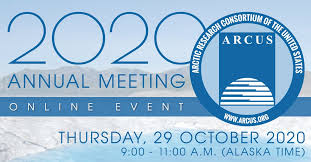
ARCUS Annual Meeting - Please Save The Date! The 2020 ARCUS Annual Meeting will take place virtually this year on Thursday, 29 October 2020, 9–11am AKDT, 10am–12pm PDT, 11am–1pm MDT, 12–2pm CDT, 1–3pm EDT. ARCUS Annual Meetings serve as an important opportunity for the Council of ARCUS Institutional Member Representatives, ARCUS Individual Members, and other members of the broader Arctic research community to connect with one another, the ARCUS Board of Directors, and staff. The meeting will be open to all interested participants and there is no cost to attend. Register here.
 Witness Community Highlights - The August 2020 issue of Witness Community Highlights is now available online. This issue includes two articles: “Activity Updates from the Arctic Domain Awareness Center,” an overview of the Center’s mission-driven research efforts and projects; and “Co-producing Knowledge of Shorefast Ice in Uummannaq Bay, West Greenland,” describing research efforts to combine remote sensing technology with community-based monitoring and local and Indigenous knowledge to better understand how shorefast ice has changed as the Arctic warms and how these changes matter to individuals and communities in the Uummannaq region. Read the Issue. Witness Community Highlights - The August 2020 issue of Witness Community Highlights is now available online. This issue includes two articles: “Activity Updates from the Arctic Domain Awareness Center,” an overview of the Center’s mission-driven research efforts and projects; and “Co-producing Knowledge of Shorefast Ice in Uummannaq Bay, West Greenland,” describing research efforts to combine remote sensing technology with community-based monitoring and local and Indigenous knowledge to better understand how shorefast ice has changed as the Arctic warms and how these changes matter to individuals and communities in the Uummannaq region. Read the Issue.
 August 2020 Sea Ice Outlook Report - The 2020 August Sea Ice Outlook (SIO) Report, published by the Sea Ice Prediction Network (SIPN2), is now available online. The Sea Ice Outlook provides an open process for those interested in Arctic sea ice to share predictions and ideas. Thirty-nine contributions were received for the August report, which included predictions of sea-ice extent for both theNew Alaska Region and pan-Antarctic, sea-ice probability, first ice-free date, and other indicators. For the pan-Arctic, the median August Outlook value for September 2020 sea-ice extent is 4.30 million square kilometers. Read the report here. August 2020 Sea Ice Outlook Report - The 2020 August Sea Ice Outlook (SIO) Report, published by the Sea Ice Prediction Network (SIPN2), is now available online. The Sea Ice Outlook provides an open process for those interested in Arctic sea ice to share predictions and ideas. Thirty-nine contributions were received for the August report, which included predictions of sea-ice extent for both theNew Alaska Region and pan-Antarctic, sea-ice probability, first ice-free date, and other indicators. For the pan-Arctic, the median August Outlook value for September 2020 sea-ice extent is 4.30 million square kilometers. Read the report here.
Requests for Arctic Research Community Input:
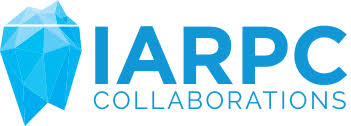 IARPC Call for Info on Recent Arctic Research Activities - IARPC has begun its yearly effort to gather information on relevant research activities that have occurred over the last fiscal year. All are invited to contribute information on recent work that is relevant to the IARPC Arctic Research Plan. Contributions should be submitted by 4 September 2020. Learn more here. IARPC Call for Info on Recent Arctic Research Activities - IARPC has begun its yearly effort to gather information on relevant research activities that have occurred over the last fiscal year. All are invited to contribute information on recent work that is relevant to the IARPC Arctic Research Plan. Contributions should be submitted by 4 September 2020. Learn more here.
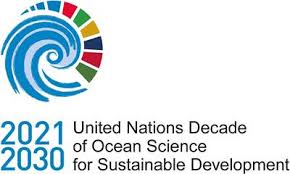 Regional Arctic Ocean Decade Action Plan Development - To implement the United Nations Decade for Oceans Science (UNDOS) in an Arctic Ocean context, a Task Force is presently preparing the development of an Arctic Ocean Action Plan. This process is a part of a global preparation process for the UN Ocean Decade, and will offer an opportunity for working group members to formulate, discuss and prioritize concrete proposals for actions in support of the Decade. Through a series of workshops, each working group will identify what the challenges and solutions are for the Arctic region, for a particular societal outcome of the UNDOS. The deadline to register for working group participation is 25 September 2020. Learn more. Regional Arctic Ocean Decade Action Plan Development - To implement the United Nations Decade for Oceans Science (UNDOS) in an Arctic Ocean context, a Task Force is presently preparing the development of an Arctic Ocean Action Plan. This process is a part of a global preparation process for the UN Ocean Decade, and will offer an opportunity for working group members to formulate, discuss and prioritize concrete proposals for actions in support of the Decade. Through a series of workshops, each working group will identify what the challenges and solutions are for the Arctic region, for a particular societal outcome of the UNDOS. The deadline to register for working group participation is 25 September 2020. Learn more.
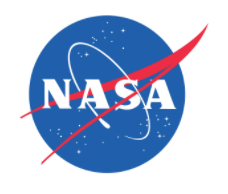 NASA Survey on Surface Topography Observational Needs - In response to the National Research Council’s A Decadal Strategy for Earth Observation from Space, NASA is conducting a study to help define surface topography observational needs for the coming decades. A large portion of the study is dedicated to defining needs for cryosphere observations. Input from the Arctic research community is critically important as it will guide future NASA investments. If you are interested in providing input, please take the time to fill out the Google survey found here. NASA Survey on Surface Topography Observational Needs - In response to the National Research Council’s A Decadal Strategy for Earth Observation from Space, NASA is conducting a study to help define surface topography observational needs for the coming decades. A large portion of the study is dedicated to defining needs for cryosphere observations. Input from the Arctic research community is critically important as it will guide future NASA investments. If you are interested in providing input, please take the time to fill out the Google survey found here.
Member News & Announcements:
We are very happy to share the announcements and achievements of our members! If you have something that you would like us to include our next monthly newsletter &/or through other ARCUS communication channels, please contact Brit Myers at brit@arcus.org.
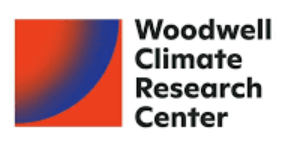 Woods Hole Research Center is Now Woodwell Climate Research Center - After 35 years as Woods Hole Research Center, WHRC has just become the Woodwell Climate Research Center. Along with the new name, Woodwell Climate is unveiling a new logo mark and launching a new web platform. Learn more and visit the new site here. Woods Hole Research Center is Now Woodwell Climate Research Center - After 35 years as Woods Hole Research Center, WHRC has just become the Woodwell Climate Research Center. Along with the new name, Woodwell Climate is unveiling a new logo mark and launching a new web platform. Learn more and visit the new site here. 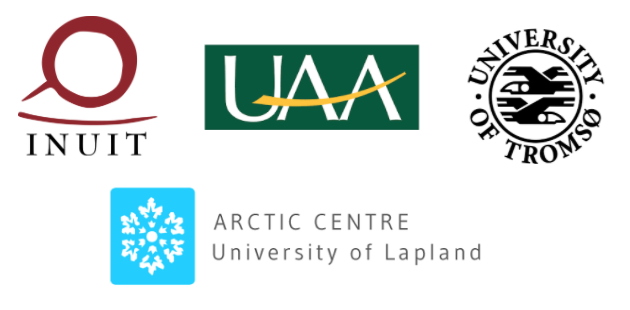 Handbook on Arctic Indigenous Peoples in the Arctic - A new handbook due to be released this December will bring together the expertise of Indigenous and non-Indigenous scholars to offer a comprehensive overview of issues surrounding the well-being, self-determination, and sustainability of Indigenous peoples in the Arctic. Learn more and pre-order the publication here. Handbook on Arctic Indigenous Peoples in the Arctic - A new handbook due to be released this December will bring together the expertise of Indigenous and non-Indigenous scholars to offer a comprehensive overview of issues surrounding the well-being, self-determination, and sustainability of Indigenous peoples in the Arctic. Learn more and pre-order the publication here.
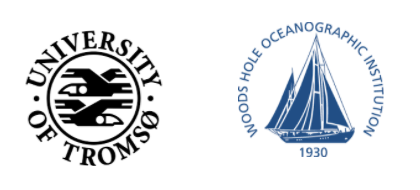 Webinar Announcement: A New Arctic Emerging - The Synoptic Arctic Survey (SAS) announces their fall webinar, entitled, A New Arctic Emerging. This webinar will take place 2 September 2020 from 3:00 to 5:00 p.m. UTC. This webinar will address the Arctic Ocean in response to present and future climate change with focus on marine physical, biogeochemical, and ecological processes, and emphasizes the underlying question behind SAS's science plan: What are the present state and major ongoing transformations of the Arctic marine system? Learn more. Webinar Announcement: A New Arctic Emerging - The Synoptic Arctic Survey (SAS) announces their fall webinar, entitled, A New Arctic Emerging. This webinar will take place 2 September 2020 from 3:00 to 5:00 p.m. UTC. This webinar will address the Arctic Ocean in response to present and future climate change with focus on marine physical, biogeochemical, and ecological processes, and emphasizes the underlying question behind SAS's science plan: What are the present state and major ongoing transformations of the Arctic marine system? Learn more.
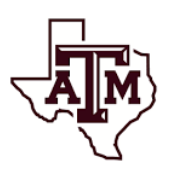 Texas A&M 2020-21 ACES Fellows Program - Texas A&M University's College of Geosciences invites applications for the Accountability, Climate, Equity, and Scholarship (ACES) Fellows Program, a two-year (24 month) fellowship for early career PhDs. In recognition of Texas A&M University's Diversity Plan, the ACES faculty pipeline initiative promotes the research, teaching, and scholarship of early career scholars who embrace the belief that diversity is an indispensable component of academic excellence. ACES Fellows will benefit from: prescriptive mentoring, access to instructional best practices, a vast array of world-class research and productivity resources, and a robust network of renowned Texas A&M scholars from across disciplines. Fellows will begin their appointment in Fall 2021. Applications are due 1 October 2020. A full listing of program eligibility and application materials can be found here. Texas A&M 2020-21 ACES Fellows Program - Texas A&M University's College of Geosciences invites applications for the Accountability, Climate, Equity, and Scholarship (ACES) Fellows Program, a two-year (24 month) fellowship for early career PhDs. In recognition of Texas A&M University's Diversity Plan, the ACES faculty pipeline initiative promotes the research, teaching, and scholarship of early career scholars who embrace the belief that diversity is an indispensable component of academic excellence. ACES Fellows will benefit from: prescriptive mentoring, access to instructional best practices, a vast array of world-class research and productivity resources, and a robust network of renowned Texas A&M scholars from across disciplines. Fellows will begin their appointment in Fall 2021. Applications are due 1 October 2020. A full listing of program eligibility and application materials can be found here.
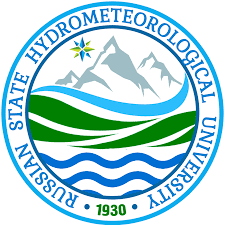 Cooperation Agreement with RosHydroMet - The head of the Russian Federal Service for Hydrometeorology and Environmental Monitoring (RosHydroMet), Igor Shumakov, and the rector of the Russian State Hydrometeorological University, Valery Mikheev, have signed a new cooperation agreement. The objectives of the agreement are to create conditions for cooperation in the educational and scientific and technical sphere, training of qualified personnel, development and implementation of modern teaching methods, joint participation in international programs and projects, and holding joint seminars and conferences. Learn more. Cooperation Agreement with RosHydroMet - The head of the Russian Federal Service for Hydrometeorology and Environmental Monitoring (RosHydroMet), Igor Shumakov, and the rector of the Russian State Hydrometeorological University, Valery Mikheev, have signed a new cooperation agreement. The objectives of the agreement are to create conditions for cooperation in the educational and scientific and technical sphere, training of qualified personnel, development and implementation of modern teaching methods, joint participation in international programs and projects, and holding joint seminars and conferences. Learn more.
 ARM Aerial Instrument Workshop Report - In March, the ARM Aerial Instrumentation Workshop was held to inform the atmospheric research community regarding updated ARM aerial capabilities and to solicit input on instrumentation for the Challenger jet, ArcticShark, and TBS platforms and the operations of these platforms.The goal of the workshop was to collect atmospheric research community input to guide the addition and implementation of measurement capabilities for ARM’s recently acquired piloted aircraft, its midsize unmanned aerial system, and its tethered balloon systems. Learn more and read the workshop report here. ARM Aerial Instrument Workshop Report - In March, the ARM Aerial Instrumentation Workshop was held to inform the atmospheric research community regarding updated ARM aerial capabilities and to solicit input on instrumentation for the Challenger jet, ArcticShark, and TBS platforms and the operations of these platforms.The goal of the workshop was to collect atmospheric research community input to guide the addition and implementation of measurement capabilities for ARM’s recently acquired piloted aircraft, its midsize unmanned aerial system, and its tethered balloon systems. Learn more and read the workshop report here.

Save the Date: Online Workshop on Indigenizing Education - The project Indigenous Pedagogy in Teacher Education will have its first workshop online on 16–17 November 2020. The workshop topics will focus on research, but we warmly welcome participants from different stakeholder groups: practitioners, policy makers, local authorities, as well as all who are interested in the theme. The workshop will be hosted by UiT The Arctic University of Norway. The other partners participating in organising the workshop are University of Lapland (project leader), Sámi University of Applied Sciences, Umeå University, and local partners Inker-Anni Linkola-Aikio from Sámi Archives and traditional knowledge keeper Jorunn Eikjok. The workshop is part of the activities of UArctic Thematic Network on Teacher Education. Learn more.
 Smithsonian Arctic Studies Center Learning Lab Resources - The Smithsonian Learning Lab is a major rethinking of how the digital resources from across the Smithsonian’s 19 museums, nine major research centers, the National Zoo, and more, can be used together for learning. The online collections of the Learning Lab currently feature a wealth of content from the Smithsonian Arctic Studies Center in Alaska, inviting teachers, students, parents, and lifelong learners to explore Alaska Native cultures, museum objects, community videos, and classroom lessons. Learn more. Smithsonian Arctic Studies Center Learning Lab Resources - The Smithsonian Learning Lab is a major rethinking of how the digital resources from across the Smithsonian’s 19 museums, nine major research centers, the National Zoo, and more, can be used together for learning. The online collections of the Learning Lab currently feature a wealth of content from the Smithsonian Arctic Studies Center in Alaska, inviting teachers, students, parents, and lifelong learners to explore Alaska Native cultures, museum objects, community videos, and classroom lessons. Learn more.
 Arctic Research Seminar on Bridging Arts and Science - Save the date for the next Arctic Research Seminar Series – Bridging Arts and Science, which will take place Monday, 21 September 2020, 8:00 a.m. AKDT (9:00 a.m. PDT, 10:00 a.m. MDT, 11:00 a.m. CDT, 12:00 p.m. EDT). The seminar will be presented by Matthew Burtner (University of Virginia), Leena Cho (University of Virginia), and Gabrielle Russomagno (School of Visual Arts). During this webinar, presenters will discuss how their work spans science and the arts through media such as music, landscape architecture, and the visual arts. Register online here. Arctic Research Seminar on Bridging Arts and Science - Save the date for the next Arctic Research Seminar Series – Bridging Arts and Science, which will take place Monday, 21 September 2020, 8:00 a.m. AKDT (9:00 a.m. PDT, 10:00 a.m. MDT, 11:00 a.m. CDT, 12:00 p.m. EDT). The seminar will be presented by Matthew Burtner (University of Virginia), Leena Cho (University of Virginia), and Gabrielle Russomagno (School of Visual Arts). During this webinar, presenters will discuss how their work spans science and the arts through media such as music, landscape architecture, and the visual arts. Register online here.
 2020 Association of Canadian Universities for Northern Studies (ACUNS) General Meeting - For the first time, the ACUNS General Meeting will be a virtual meeting held by webinar on Friday 2 October 2020, 1:00 to 3:00 p.m. EDT. To attend, register here by 25 September 2020. 2020 Association of Canadian Universities for Northern Studies (ACUNS) General Meeting - For the first time, the ACUNS General Meeting will be a virtual meeting held by webinar on Friday 2 October 2020, 1:00 to 3:00 p.m. EDT. To attend, register here by 25 September 2020.
 Buckland Healthy Homes - CCHRC is working with the Native Village of Buckland on a Healthy Homes project and is currently in the process of completing a Tier 1 Environmental Review. A Notice of Intent to Request Release of Funds has been posted and the current draft of the Environmental Review Record is now available on the project website here for anyone who would like to read and/or comment. Buckland Healthy Homes - CCHRC is working with the Native Village of Buckland on a Healthy Homes project and is currently in the process of completing a Tier 1 Environmental Review. A Notice of Intent to Request Release of Funds has been posted and the current draft of the Environmental Review Record is now available on the project website here for anyone who would like to read and/or comment.
 Foreign Marine Debris Found in the Bering Sea - The Bering Sea has noted an abundance of foreign debris washing up on our shores. Communities like Unalakleet, Gambell, Savoonga, and Nome have all reported and documented hoards of this debris. And these cases are the reported ones, which likely means more are unreported. Along with facilitating a response and clean up, Kawerak has written a letter to urge the Coast Guard to respond to this alarming increase of trash littering the pristine waters of the Bering Sea. Learn more. Foreign Marine Debris Found in the Bering Sea - The Bering Sea has noted an abundance of foreign debris washing up on our shores. Communities like Unalakleet, Gambell, Savoonga, and Nome have all reported and documented hoards of this debris. And these cases are the reported ones, which likely means more are unreported. Along with facilitating a response and clean up, Kawerak has written a letter to urge the Coast Guard to respond to this alarming increase of trash littering the pristine waters of the Bering Sea. Learn more.
 ABR Inc. Featured Researcher: Matthew Macander - Matt is a geographer specializing in wildlife, vegetation and habitat studies, and landscape ecology. He leads ABR's remote sensing group and has over 18 years of mapping experience in Alaska. His expertise includes vegetation and habitat mapping, spectral analysis, image classification, and spatial modeling. He works with a diverse array of aerial and satellite imagery and employs time-series analysis to characterize vegetation phenology and landscape change. Learn more. ABR Inc. Featured Researcher: Matthew Macander - Matt is a geographer specializing in wildlife, vegetation and habitat studies, and landscape ecology. He leads ABR's remote sensing group and has over 18 years of mapping experience in Alaska. His expertise includes vegetation and habitat mapping, spectral analysis, image classification, and spatial modeling. He works with a diverse array of aerial and satellite imagery and employs time-series analysis to characterize vegetation phenology and landscape change. Learn more.
 The Central Arctic Ocean Fisheries Agreement as an Element in the Evolving Arctic Ocean Governance Complex - The Central Arctic Ocean (CAO) has attracted increased attention since representatives of the five Arctic coastal states together with representatives of four other states and the European Union signed the Agreement to Prevent Unregulated High Seas Arctic Fisheries in October 2018. This new Marine Policy article assesses the significance of this development as an element in the evolving governance complex for the Arctic Ocean. Learn more. The Central Arctic Ocean Fisheries Agreement as an Element in the Evolving Arctic Ocean Governance Complex - The Central Arctic Ocean (CAO) has attracted increased attention since representatives of the five Arctic coastal states together with representatives of four other states and the European Union signed the Agreement to Prevent Unregulated High Seas Arctic Fisheries in October 2018. This new Marine Policy article assesses the significance of this development as an element in the evolving governance complex for the Arctic Ocean. Learn more.
 Sitka Sound Science Center Offers Science in Place (SiP) Kits - The Sitka Sound Science Center is trying something new this year. Instead of holding in-person camps as usual, SSSC is presenting a new format of summer science learning and fun known as “Science in Place” kits, or SiPs. There are six SiP kits to choose from and each one is based on the same or similar camp topics SSSC had planned on offering in person. Learn more and order a kit here. Sitka Sound Science Center Offers Science in Place (SiP) Kits - The Sitka Sound Science Center is trying something new this year. Instead of holding in-person camps as usual, SSSC is presenting a new format of summer science learning and fun known as “Science in Place” kits, or SiPs. There are six SiP kits to choose from and each one is based on the same or similar camp topics SSSC had planned on offering in person. Learn more and order a kit here.
 Facilitating Increased Engagement Between The Research Communities of Greenland and the US - A two-day workshop was held 27–28 August 2018 at Pinngortitaleriffik (Greenland Institute of Natural Resources, GINR), in Nuuk, Greenland, where diverse participants from the US (19) and Greenland (29) research communities explored possibilities for strengthening US-Greenland collaborations. Participants set priorities for future work and funding related to: Research & Co-production of Research, Public Outreach, and Education & Student Training. The key finding from the workshop was that US-Greenland collaborations will strengthen if researchers work together intentionally and continuously. This includes starting collaborations early to co-define project questions and objectives and allowing adequate time to develop trusted partnerships with defined roles. Learn more and read the workshop report here. Facilitating Increased Engagement Between The Research Communities of Greenland and the US - A two-day workshop was held 27–28 August 2018 at Pinngortitaleriffik (Greenland Institute of Natural Resources, GINR), in Nuuk, Greenland, where diverse participants from the US (19) and Greenland (29) research communities explored possibilities for strengthening US-Greenland collaborations. Participants set priorities for future work and funding related to: Research & Co-production of Research, Public Outreach, and Education & Student Training. The key finding from the workshop was that US-Greenland collaborations will strengthen if researchers work together intentionally and continuously. This includes starting collaborations early to co-define project questions and objectives and allowing adequate time to develop trusted partnerships with defined roles. Learn more and read the workshop report here.
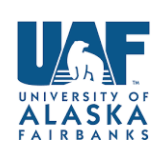 New Fisheries and Marine Sciences Program Focuses on Indigenous Knowledge - A new graduate traineeship program at the University of Alaska Fairbanks will broaden and diversify graduate education in fisheries and marine sciences through greater inclusion of Indigenous peoples and knowledge. Learn more. New Fisheries and Marine Sciences Program Focuses on Indigenous Knowledge - A new graduate traineeship program at the University of Alaska Fairbanks will broaden and diversify graduate education in fisheries and marine sciences through greater inclusion of Indigenous peoples and knowledge. Learn more.
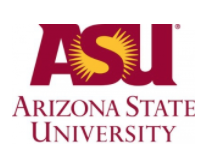 Empowering the Community in Marine Policy - Katherine Ball, a Human and Social Dimensions of Science and Technology PhD Student at Arizona State University’s School for the Future of Innovation in Society has been named a finalist for the 2021 class of the Sea Grant Knauss Marine Policy Fellowship. Ball wants to improve public participation in marine policy and find ways for communities to be better engaged with government. Currently developing her second-year research project, she is looking at how federal agencies perceive, value, and govern Alaska’s oceans and whether there is a disconnect between agencies based in Washington, DC, and their regional offices in Alaska. Learn more. Empowering the Community in Marine Policy - Katherine Ball, a Human and Social Dimensions of Science and Technology PhD Student at Arizona State University’s School for the Future of Innovation in Society has been named a finalist for the 2021 class of the Sea Grant Knauss Marine Policy Fellowship. Ball wants to improve public participation in marine policy and find ways for communities to be better engaged with government. Currently developing her second-year research project, she is looking at how federal agencies perceive, value, and govern Alaska’s oceans and whether there is a disconnect between agencies based in Washington, DC, and their regional offices in Alaska. Learn more.
 Arctic Environmental Humanities Workshop Series - Organizers announce the launch of the online Arctic Environmental Humanities (AEH) Workshop, a collaboration between Cambridge University’s Scott Polar Research Institute and Boston University’s Pardee Center for the Study of the Longer-Range Future. This international endeavor will bring together scholars, researchers, and artists working across the humanities and humanistic social sciences, and those in polar sciences who want to join in conversations about urgent issues facing the Arctic, as well as on the insights uniquely possible through an Arctic lens. Presentations and conversations will take place in varied formats, all online and freely accessible. The perspectives and participation of northern communities and people will be particularly valuable and encouraged. Learn more. Arctic Environmental Humanities Workshop Series - Organizers announce the launch of the online Arctic Environmental Humanities (AEH) Workshop, a collaboration between Cambridge University’s Scott Polar Research Institute and Boston University’s Pardee Center for the Study of the Longer-Range Future. This international endeavor will bring together scholars, researchers, and artists working across the humanities and humanistic social sciences, and those in polar sciences who want to join in conversations about urgent issues facing the Arctic, as well as on the insights uniquely possible through an Arctic lens. Presentations and conversations will take place in varied formats, all online and freely accessible. The perspectives and participation of northern communities and people will be particularly valuable and encouraged. Learn more.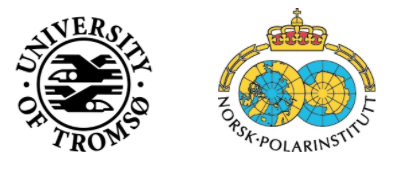 Integrated Ocean Management For A Sustainable Ocean Economy - The rapidly evolving ocean economy, driven by human needs for food, energy, transportation, and recreation, has led to unprecedented pressures on the ocean that are further amplified by climate change, loss of biodiversity, and pollution. The need for better governance of human activities in the ocean space has been widely recognized for years, and is now also incorporated in the United Nations Sustainable Development Goals. Even so, many challenges relating to the implementation of existing governance frameworks exist. In this new Nature article, researchers argue that integrated ocean management (IOM) should be the key overarching approach—building upon and connecting existing sectoral governance efforts—for achieving a sustainable ocean economy. Learn more. Integrated Ocean Management For A Sustainable Ocean Economy - The rapidly evolving ocean economy, driven by human needs for food, energy, transportation, and recreation, has led to unprecedented pressures on the ocean that are further amplified by climate change, loss of biodiversity, and pollution. The need for better governance of human activities in the ocean space has been widely recognized for years, and is now also incorporated in the United Nations Sustainable Development Goals. Even so, many challenges relating to the implementation of existing governance frameworks exist. In this new Nature article, researchers argue that integrated ocean management (IOM) should be the key overarching approach—building upon and connecting existing sectoral governance efforts—for achieving a sustainable ocean economy. Learn more.
 Alaska Marine Science Symposium 2021 Going Virtual - The 2021 Alaska Marine Science Symposium (AMSS) virtual event will take place on 26–28 January 2021. The Steering Committee, while recognizing the strength of an in-person conference (networking, meeting spaces, etc.), has unanimously voted to host AMSS virtually for 2021. Learn more. Alaska Marine Science Symposium 2021 Going Virtual - The 2021 Alaska Marine Science Symposium (AMSS) virtual event will take place on 26–28 January 2021. The Steering Committee, while recognizing the strength of an in-person conference (networking, meeting spaces, etc.), has unanimously voted to host AMSS virtually for 2021. Learn more.
 Expedition Report: SWEDARCTIC Ryder 2019 - A multidisciplinary scientific expedition to northern Greenland, named Ryder 2019 Expedition, including both marine and terrestrial components, was conducted over 37 days in 2019, from 5 August to 10 September, aboard the Swedish icebreaker (IB) Oden. During the expedition, IB Oden traveled 3369 miles and mapped approximately 6600 sq km of seafloor with high-resolution multibeam sonar. Learn more. Expedition Report: SWEDARCTIC Ryder 2019 - A multidisciplinary scientific expedition to northern Greenland, named Ryder 2019 Expedition, including both marine and terrestrial components, was conducted over 37 days in 2019, from 5 August to 10 September, aboard the Swedish icebreaker (IB) Oden. During the expedition, IB Oden traveled 3369 miles and mapped approximately 6600 sq km of seafloor with high-resolution multibeam sonar. Learn more.
 COL Member Highlight: A ‘Regime Shift’ Is Happening In The Arctic Ocean, Stanford Scientists Say - Stanford scientists find the growth of phytoplankton in the Arctic Ocean has increased 57 percent over just two decades, enhancing its ability to soak up carbon dioxide. While once linked to melting sea ice, the increase is now propelled by rising concentrations of tiny algae. Learn more. COL Member Highlight: A ‘Regime Shift’ Is Happening In The Arctic Ocean, Stanford Scientists Say - Stanford scientists find the growth of phytoplankton in the Arctic Ocean has increased 57 percent over just two decades, enhancing its ability to soak up carbon dioxide. While once linked to melting sea ice, the increase is now propelled by rising concentrations of tiny algae. Learn more. 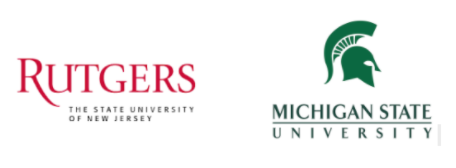 Working with Indigenous and Local Knowledge In large‐scale Ecological Assessments - The Intergovernmental Science‐Policy Platform on Biodiversity and Ecosystem Services (IPBES) Global Assessment (GA) demonstrated the importance of Indigenous peoples and local communities (IPLC) to global biodiversity conservation and ecosystem management. Initiatives seeking to engage Indigenous and local knowledge (ILK) can learn from the experience of the GA. Successfully bringing ILK into assessment processes and policy arenas requires a deliberate framework and approach from the start that facilitates recognition of different knowledge systems, identifies questions relevant at various scales, mobilizes funding and recognizes time required and engages networks of stakeholders with diverse worldviews. Learn more. Working with Indigenous and Local Knowledge In large‐scale Ecological Assessments - The Intergovernmental Science‐Policy Platform on Biodiversity and Ecosystem Services (IPBES) Global Assessment (GA) demonstrated the importance of Indigenous peoples and local communities (IPLC) to global biodiversity conservation and ecosystem management. Initiatives seeking to engage Indigenous and local knowledge (ILK) can learn from the experience of the GA. Successfully bringing ILK into assessment processes and policy arenas requires a deliberate framework and approach from the start that facilitates recognition of different knowledge systems, identifies questions relevant at various scales, mobilizes funding and recognizes time required and engages networks of stakeholders with diverse worldviews. Learn more. 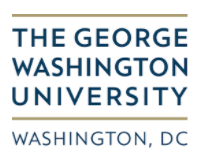 Russian Analytical Digest - The Russian Analytical Digest (RAD) analyzes recent events, trends, and developments within contemporary Russian politics, economics and business, foreign policy, security, and society. Each issue contains original academic and policy-relevant research articles by authors from across the globe, and topical statistical data, graphics, and opinion polls. The series is produced by a partner network that includes the Center for Security Studies (CSS) at ETH Zurich, the Research Centre for East European Studies at the University of Bremen, the Institute for European, Russian and Eurasian Studies at the George Washington University, the Center for Eastern European Studies (CEES) at the University of Zurich, and the German Association for East European Studies (DGO). View past issues and subscribe here. Russian Analytical Digest - The Russian Analytical Digest (RAD) analyzes recent events, trends, and developments within contemporary Russian politics, economics and business, foreign policy, security, and society. Each issue contains original academic and policy-relevant research articles by authors from across the globe, and topical statistical data, graphics, and opinion polls. The series is produced by a partner network that includes the Center for Security Studies (CSS) at ETH Zurich, the Research Centre for East European Studies at the University of Bremen, the Institute for European, Russian and Eurasian Studies at the George Washington University, the Center for Eastern European Studies (CEES) at the University of Zurich, and the German Association for East European Studies (DGO). View past issues and subscribe here.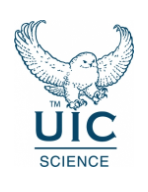 Arctic Summer Sea Ice Could Disappear as Early as 2035 - Last month, less sea ice covered the Arctic Ocean than in any other July since scientists began keeping track of it with satellites in 1979, marking another step toward a devastating and planet-reshaping inevitability: an ice-free summer for the Arctic Ocean. Learn more in this article from National Geographic. Arctic Summer Sea Ice Could Disappear as Early as 2035 - Last month, less sea ice covered the Arctic Ocean than in any other July since scientists began keeping track of it with satellites in 1979, marking another step toward a devastating and planet-reshaping inevitability: an ice-free summer for the Arctic Ocean. Learn more in this article from National Geographic. |